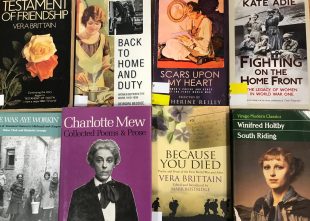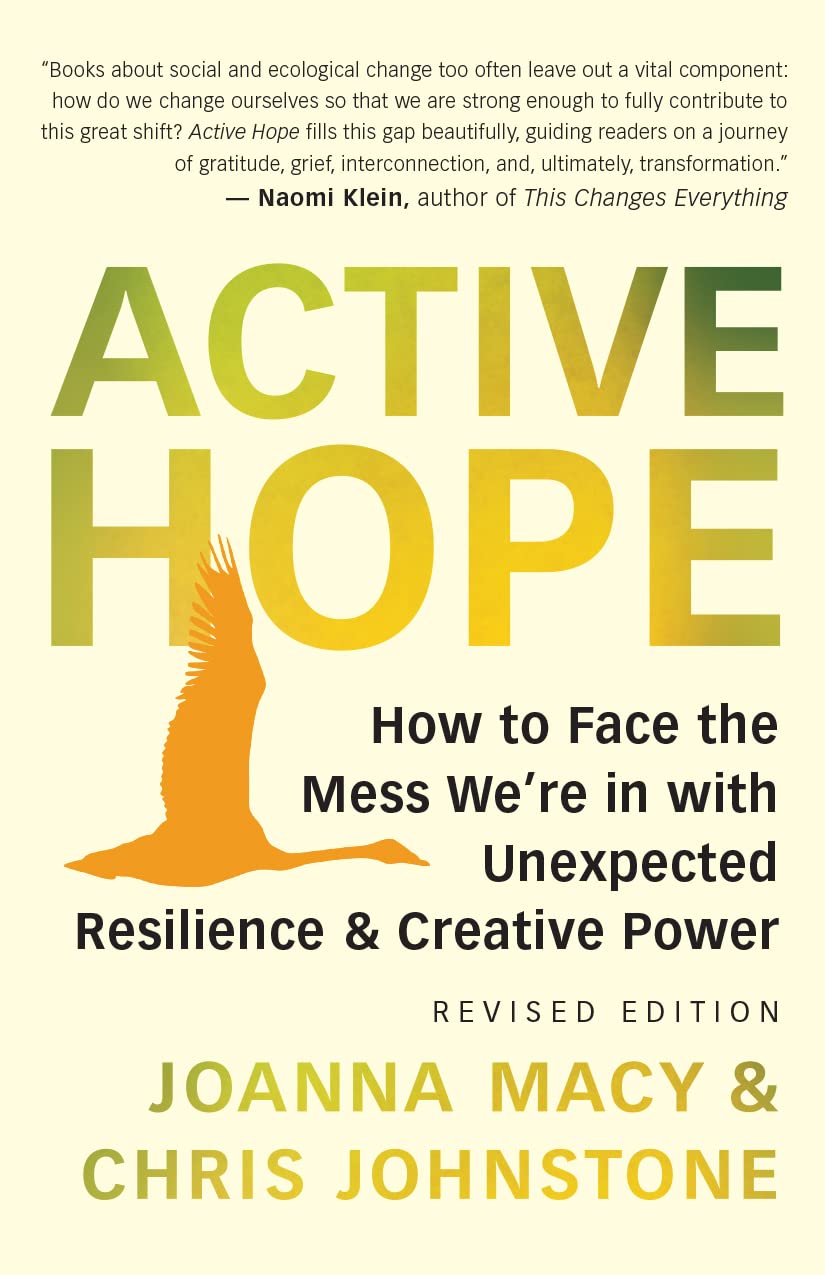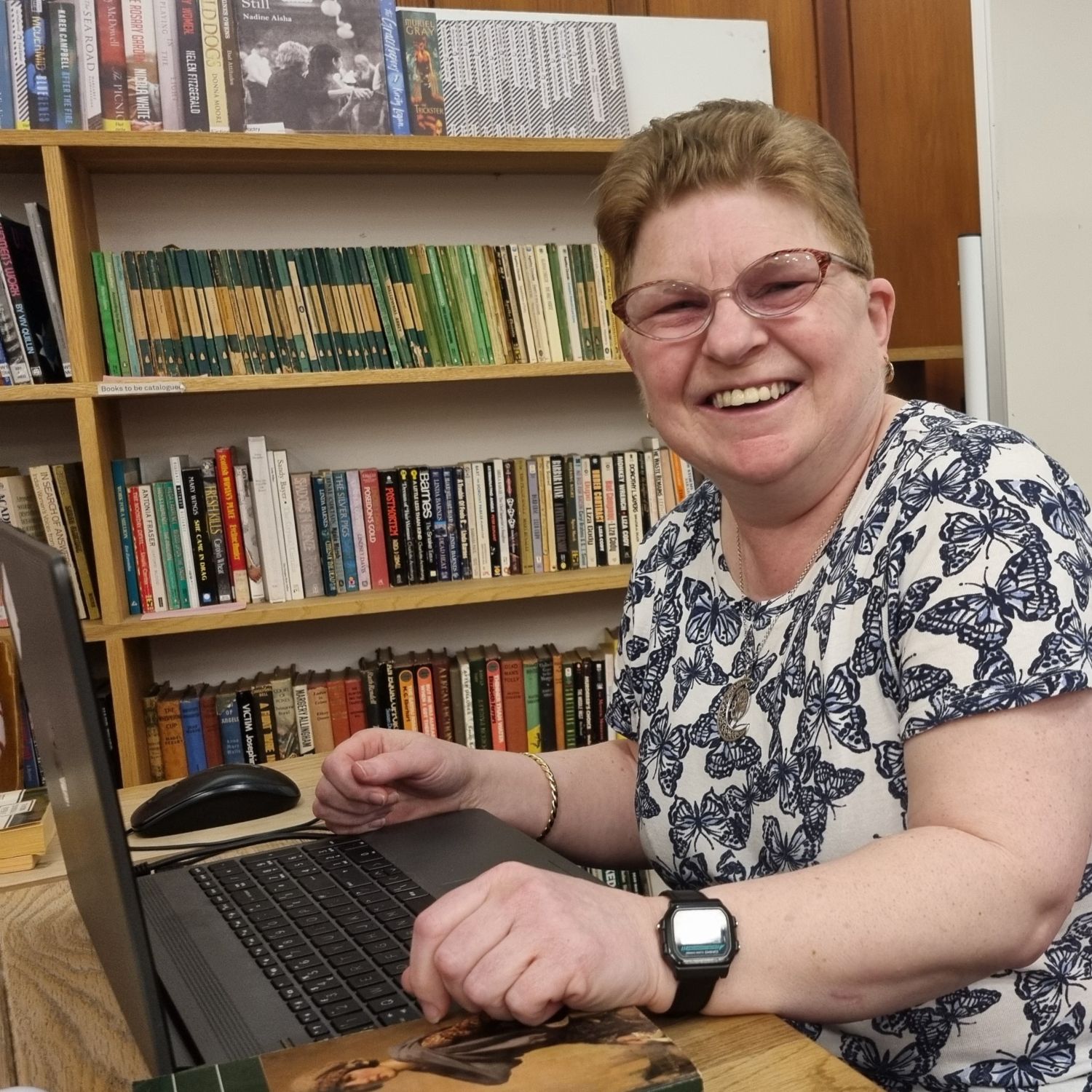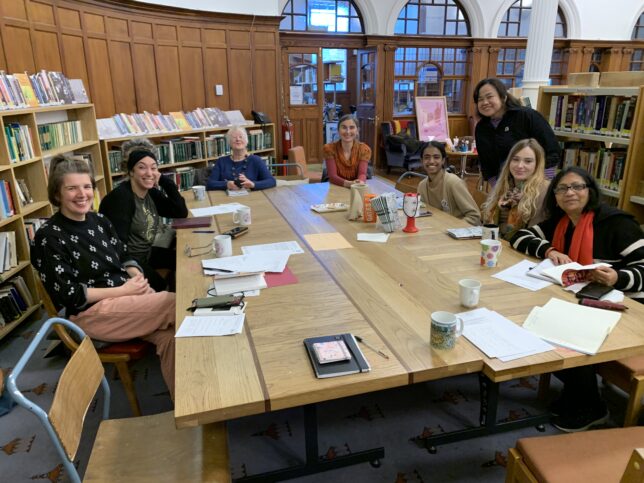
The national summer programme got off to a great start in Edinburgh in June with two events:
Our Create and Connect writing group, which meets in Edinburgh held a showcase event at the Scottish Poetry Library. Group members met with development worker Nadine in advance to practice and get support on performing their work, then read their work to an audience. The group members have been really positive about how Create and Connect has helped them develop their writing and find the confidence to perform it in front of an audience: “ The best bit is…the community created by the workshop and the sense of a safe place (and a safe space) everyone has got a lot more than they anticipated…”. This came across at the event, with audience members commenting how great it was to see the group come together and support each other.
The showcase was part of the Harpies, Fechters and Quines festival, whose theme this year was Aftermath: Women Picking Up The Pieces after Conflict and World War One. In preparation for the event, Create and Connectors wrote poems and short stories exploring this theme, and in one creative writing session led by Nadine went to visit the National Library of Scotland’s A Better World exhibition to prompt creative responses, too! The work of 7 group members was read in response on the night, exploring the legacies of women and conflict from WW1, to tales handed down through families, to exploring the legacy of conflict and colonisation globally. Audience members were also treated to poems from WW1 women writers as well: Jessie Pope’s ‘War Girls’ and Marian Allen’s ‘The Wind on the Downs’.
The very next day, our partnership with the Harpies, Fechters and Quines festival continued as we held a Story Café at Edinburgh Central Library. We examined the festival’s theme of “Aftermath” and how women picked up the pieces of their lives after the devastation of World War 1 and how many of their new found freedoms were lost during the inter war years. The readings included women poets, writers and journalists ranging from Naomi Mitchison to Kate Adie. One of the challenges was finding poetry which took on the subject of working class women and the economic and social challenges they faced during the inter war years. However we did hear some really compelling voices from “She Was Aye Workin’” by Helen Clark and Elizabeth Carnegie, which shares the oral history and stories of tenement women in Edinburgh and Glasgow and highlights the struggle to survive that took up many women’s lives during the 20s and 30s. Audre Lorde said, “Poetry is not a luxury” but for these women perhaps it was. If anyone knows about women poets writing about working class women’s experience during the inter war years, get in touch – we’d love to add them to our collection.
There was lots of really interesting chat at this Story Café – our volunteer Bev talked about Vera Brittain’s life and writing and one of the women who attended read out her own poem about women’s equality – a fitting end to a lovely workshop!





